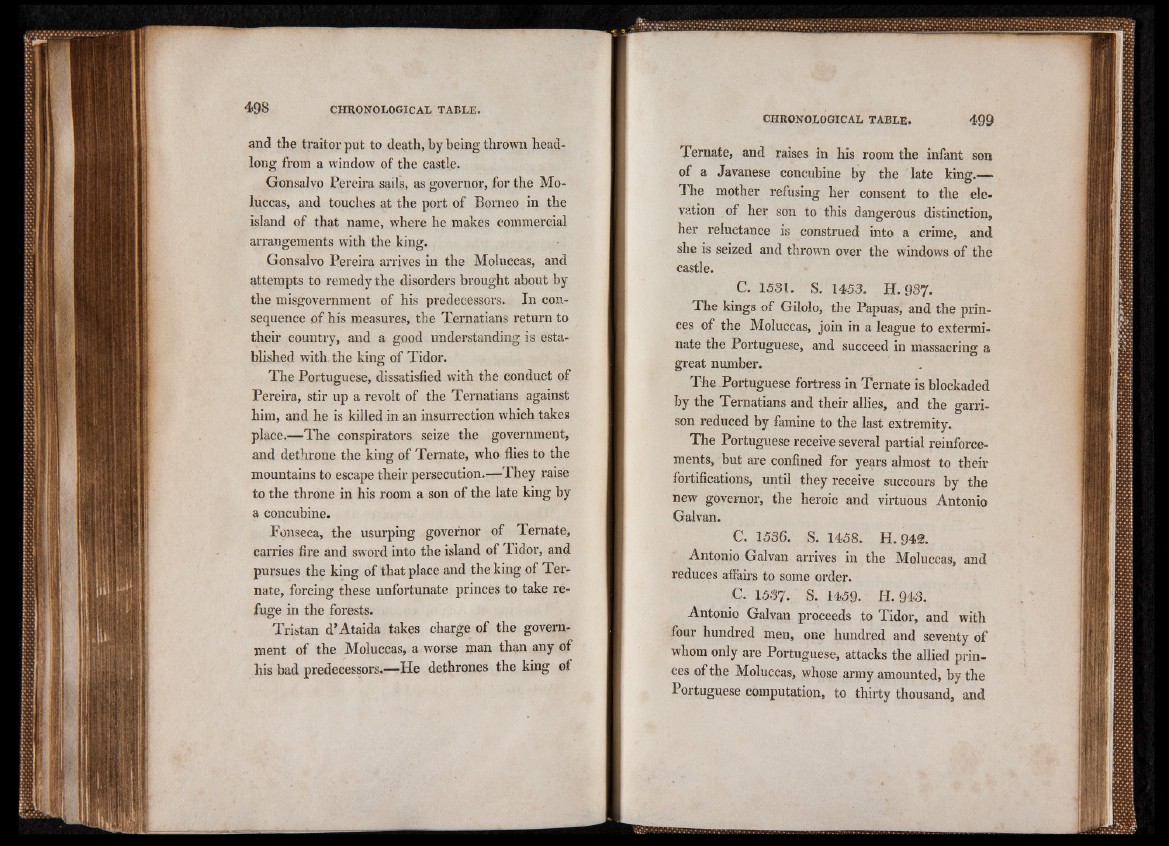
and the traitor put to death, by being thrown headlong
from a window of the castle.
Gonsalvo Pereira sails, as governor, for the Moluccas,
and touches at the port of Borneo in the
island of that name, where he makes commercial
arrangements with the king.
Gonsalvo Pereira arrives in the Moluccas, and
attempts to remedy the disorders brought about by
the misgovernment of his predecessors. In consequence
of his measures, the Ternatians return to
their country, and a good understanding is established
with the king of Tidor.
The Portuguese, dissatisfied with the conduct of
Pereira, stir up a revolt of the Ternatians against
him, and he is killed in an insurrection which takes
place.— The conspirators seize the government,
and dethrone the king of Ternate, who flies to the
mountains to escape their persecution.—They raise
to the throne in his room a son of the late king by
a concubine.
Fonseca, the usurping governor of Ternate,
carries fire and sword into the island of Tidor, and
pursues the king of that place and the king of Ternate,
forcing these unfortunate princes to take refuge
in the forests.
Tristan d’Ataida takes charge of the government
of the Moluccas, a worse man than any of
his bad predecessors.—He dethrones the king of
Ternate, and raises in his room the infant son
of a Javanese concubine by the late king.—
1 he mother refusing her consent to the elevation
of her son to this dangerous distinction,
her reluctance is construed into a crime, and
she is seized and thrown over the windows of the
castle.
C. 1531. S. 1453. H. 937.
The kings of Gilolo, the Papuas, and the princes
of the Moluccas, join in a league to exterminate
the Portuguese, and succeed in massacring a
great number.
The -Portuguese fortress in Ternate is blockaded
by the Ternatians and their allies, and the oearn- son reduced by famine to the last extremity.
The Portuguese receive several partial reinforcements,
but are confined for years almost to their
fortifications, until they receive succours by the
new governor, the heroic and virtuous Antonio
Galvan.
C. 1536. S. 1458. H. 942.
Antonio Galvan arrives in the Moluccas, and
reduces affairs to some order.
C. 1537. S. 1459. H. 943.
Antonio Galvan proceeds to Tidor, and with
four hundred men, one hundred and seventy of
whom only are Portuguese, attacks the allied princes
of the Moluccas, whose army amounted, by the
Portuguese computation, to thirty thousand, and